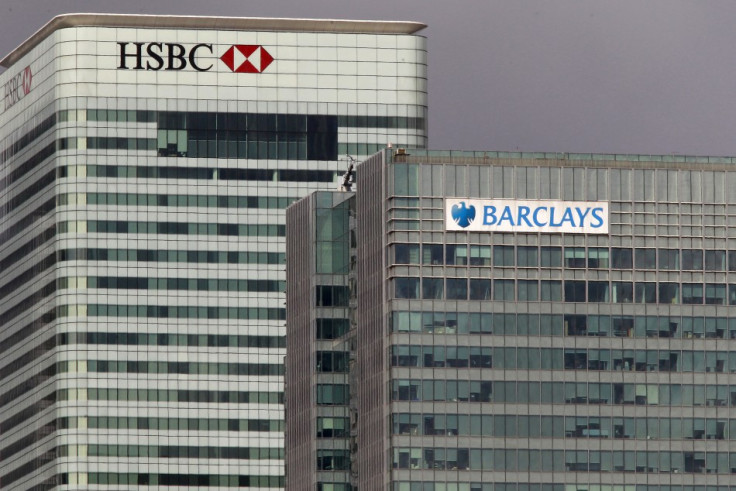Libor or Money-Laundering? Focus on Arcane Rate Rigging Reveals Deeper Media Prejudice

A damning report from regulators details the findings of a year-long investigation into shady banking practices and a polluted culture of risk-taking and rules evasion that undermines trust in one of the core aspects of the global financial system.
Executives are called to testify before lawmakers while the bank issues a grovelling apology and vows to make fundamental changes to the way it does business in order to win back the trust of its customers. Lawmakers simultaneously accuse regulators of failing to investigate known claims of dishonesty and malpractice in a growing scandal that stretches across oceans and continents and threatens to implicate other banks and financial institutions before it's finally put to rest.
Which scandal does this best describe? HSBC's alleged money-laundering or Barclay's alleged libor-rigging?
Your answer may correctly be "both" - but it would still beg the question as to why one has dominated the newscycle for a fortnight while the other has barely registered a mention "above the fold"?
The allegations detailed in the Senate Permanent Subcommittee on Investigations make for chilling reading: billions in cash potentially laundered for drug cartels in Mexico, "bulk-shipments" of US dollars to a Saudi bank with ties to terrorism, tens of billions worth of deals with Iranian, North Korean and Sudanese banks and businesses disguised as legitimate in order to thwart internationally supported economic sanctions.
By any reasonable measure, the sort of cross-border criminality alleged to have been perpetrated by affiliates of Britain's biggest bank - the kind that senior lawmakers say could threaten its license to do business in the United States - should trump the FSA's wonkish investigation into the little-understood market for inter-banking lending rates.
It hasn't, of course. And that says much our relationship with the banking industry and the media's relationship with politicians.
Barclays' efforts to gain first-mover advantage in offering a mea culpa and a (meagre and uncontested) fine blew up in their face for a number of reasons, but mostly because they misunderstood the key components of the media narrative.
In Bob Diamond, the press had their poster-boy: the world's best paid bank CEO with a reputation for aggressively pursuing his business aims, muscling regulators and bragging about his successes - in an American accent.
Never mind that Barclays hadn't taken a penny of Exchequer or taxpayer cash or that the FSA flimsy libor-rigging evidence has yet to be heard in any court beyond that of "public opinion".
Barclays was guilty, Diamond was responsible and that was that.
What's more deeply troubling than the fact that "narrative trumps fact" is that the easy story-line cloaks a series of miserable failures by lawmakers, central bankers and regulators that *should* be the focus of commentators' disgust.
Instead, we get stories about the "culture of risk" at the bank and the "damning testimony" of the rear-covering regulators who happily throw Barclays under the bus in an effort to deflect attention from their years of ineptitude.
Sadly, too many in the media seem happy to oblige.
Meanwhile, when gifted a banking scandal that has real - as opposed to the minutely plausible - risks, the story gets buried.
Why? Is it because Stuart Gulliver is a paid-up member of the Oxbridge elite with the right kind of vowels?
I certainly hope not.
HSBC's shame should be significantly more pronounced than Barclays given the scale, tenor and severity of the accusations it's admitted.
But, it seems, if there's no American banker to throw under the bus, there's not story.
If the characters *in* the story are more important than that character *of* the story, then the fourth estate has failed its duty to hold power to account.
In the case of Libor versus Laundering, the media gets and "F".
© Copyright IBTimes 2025. All rights reserved.





















